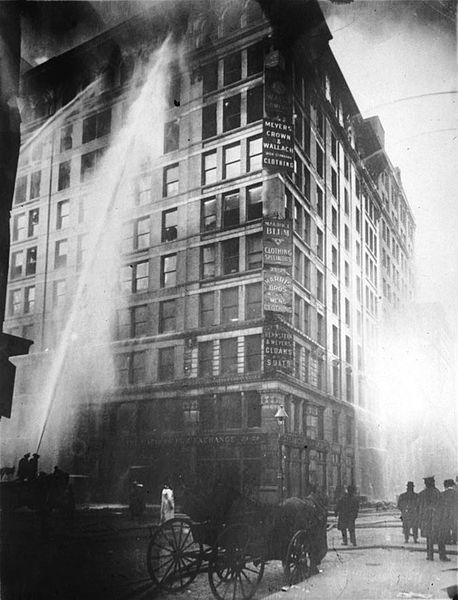On March 25, 1911, a horrific tragedy occurred in New York City that resulted in the fourth highest number of deaths from an industrial accident in the history of the United States. This tragedy, which resulted in 146 workplace deaths, was called the Triangle Shirtwaist Fire and it was the catalyst that set in motion many worker protection efforts. Many of the worker protection laws in place today can be indirectly tied back to the tragedy of the Triangle Shirtwaist fire that occurred more than 100 years ago.
In today’s modern world where workers now have many legal rights, it may seem unthinkable that such a tragedy could occur again. Sadly, however, such a tragedy did happen recently. The only difference is, this tragedy happened in a clothing factory in Bangladesh. 
Our Quincy workers’ compensation lawyers want to make sure workers and employers are aware of the tragedy in Bangladesh that occurred this November. The fire in the clothing factory serves as an important reminder of how essential worker protection laws are in the United States and it illustrates the tragedies that can result when employers ignore the safety of their workers in favor of profits.
The Fire in Bangladesh
According to the Washington Post, a terrible fire broke out in late November in a Bangladesh clothing factory. The factory had no emergency exits and the doors to the factory were locked so the workers were unable to escape the building. As a result, nearly 100 workers died in the blaze and many were so badly burned that their bodies could not be identified.
The particulars of the fire, according to the Post, were very similar to those in the Triangle Shirtwaist Fire that jump-started the worker rights movement. In the Triangle Shirtwaist Fire, the doors to the factory were also kept locked in an effort to prevent break-ins and theft. The locked doors made it impossible for workers to get out, causing many to burn to death and others to jump to their death from the eighth, ninth and tenth floors where they were working.
Today, such a situation would hopefully not happen in America because workers are better protected and employers held accountable for their actions. The fire, however, was not simply one in a distant country operated by people far removed from the U.S. The factory supplies clothing to many retailers including Wal-Mart.
Although Wal-Mart has indicated that the factory had received a bad report for its fire safety provisions and was no longer authorized to make its clothing, the fact remains that a Wal-Mart label, Faded-Glory, was found at the fire site. Apparently, according to Wal-Mart, someone on its supply chain subcontracted to the factory.
Learning from the Tragedy
Regardless of the extent of Wal-Mart’s responsibility, the tragic fire in Bangladesh teaches many important lessons. The first is that worker protection laws and the focus on worker rights in the United States are absolutely essential. In foreign countries without worker protection laws, horror stories abound, including not just the tragic story of this most recent fire but also numerous other reports of terrible labor conditions including stories of the horrific working conditions in Apple factories in China.
In these foreign countries, many major U.S. corporations have shown that they will try to get away with providing poor treatment to workers unless the laws mandate otherwise. U.S. worker protection laws, therefore, need to be tightly enforced and any attempt to curtail those laws should be vigorously opposed.
Other lessons to take away from the tragic fire include a reminder to consumers that low prices can come at a very large cost. When doing business with companies, consumers have the power to stand up and say no to buying from those who exploit and endanger their workers.
The workers’ compensation lawyers at Jeffrey Glassman Injury Lawyers are here to offer free and confidential consultations to those who have been injured at work. Call (617) 777-7777 today!
Additional Resources:
Boston Work Injury Watch: Top 10 Work Accidents in 2012, Massachusetts Workers’ Compensation Lawyers Blog, October 24, 2012
Cold Weather Threatening Workers’ Safety across New England
, Massachusetts Workers’ Compensation Lawyers Blog, October 19, 2012
 Massachusetts Workers Compensation Lawyers Blog
Massachusetts Workers Compensation Lawyers Blog

